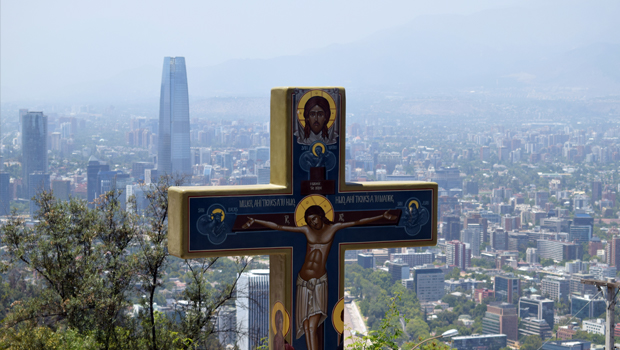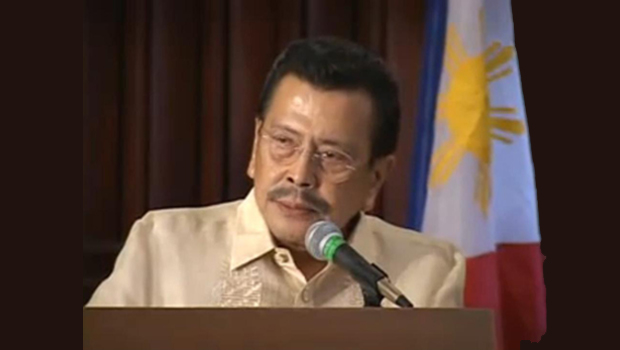Monica Gonzalez is director of CIPER, a nonprofit online investigative news organization founded in Chile in 2007. Gonzalez has received the Maria Moors Cabot Award from Columbia University and the M. Lyons Award for Conscience and Integrity in Journalism from Harvard University, among many others. In this interview, she describes the challenges investigative journalists face in Latin America.
Tell us about some recent research at CIPER and how it has made a difference.
Since 2011 we have published several reports on education that have had great impact. We analyzed the Chilean educational model that, for a long time, was thought to be successful because seven out of 10 students were the first generation of their families to attend college. But serious concerns were emerging. We studied how Chile had increased the number of university students twentyfold without worrying about who their teachers were, what quality of education they were getting, and what happened with the debt their families took on in order to finance a degree. In many cases the degree would not fulfill the promise that it would help students move out of poverty and improve their quality of life.
That meant digging into the business model of universities. The law expressly prohibits them from obtaining profits. They do this anyway through related companies that, at the expense of quality, accumulate profits into the pockets of the owners who have been growing richer every day. The tuition fees were very expensive and families resorted to borrowing money through the Credits with State Guarantee program. This provided another business opportunity for banks and private universities. And it came with 6 percent yearly interest. Furthermore, loans were sold, which led to litigation against directors of the lending entity. Three university deans have been jailed and are awaiting final rulings in their cases. The lending system and the Credit with State Guarantee agency are now being reengineered: banks were cut out from a business that should never have existed and the interest rates were reduced to 2 percent. And there are more changes to follow.
I’m not saying CIPER should take all the credit. Our contribution was to show failings in public policies and document who was benefiting. All this took a long time and allowed us to do a job we are proud of, since students were able to use our work, both in speeches before Congress and during internal discussions, to demand reforms.
Another investigation that took a long time was our investigation of sexual abuse within the Catholic Church and its culture of concealment. We wanted to investigate how people who were known to be abusing those under their protection or spiritual guidance were protected by the Church. We demonstrated how the church was involved and was allowing complaints to be silenced.
CIPER just turned 6 years old. How do you evaluate the impact you have caused?
It has been a process of learning about new methods. It is essentially about a new way of looking at the agenda and studying how we make decisions internally, as a small group, on what we are going to investigate and how we are going to do it. I feel we have made good choices – with many mistakes, of course – because we focused on looking at broader systems. I think that’s the difference between accusation and investigation. We do not denounce people. The main objective of CIPER’s work is to find the gaps and flaws in the system of regulations, auditing and public policy-making. These gaps in the system, some of which are no accident, promote corruption and have an impact on the quality of life of Chileans.
Are journalists prepared to do this kind of investigative journalism?
There are many shortcomings in the training of journalists in Chile and in the rest of Latin America, which is the region I know best. There is a lack of methodology, training and knowledge, sometimes at the basic levels of how the economy works. There are many journalists who do not know, for example, how to read a budget law.
There are other more endogenous and more complicated problems. They have to do with the links and the lines of communication between economic power and the media. This refers to media that do not investigate deeper into certain economic sectors because there are conflicts of interests involving their owners.
Another problem arises: there are very experienced journalists reporting on government, but they have trouble demanding transparency from the private sector.
You mentioned the issue of the links between the media and the economic power, so common in Latin America. How does CIPER address that, as a non-profit center whose funding comes largely from businessmen from all sectors of the economy?
When you receive financing there is an explicit statement saying that the entrepreneur gives you full editorial freedom. That idealistic statement is not a reality until it is subject to a test of strength. In six years we have had two or three tests in this regard.
One of the important investigative reports we have done in recent times was our investigation into who benefited from the granting of loans to the most vulnerable students, the famous Credit with State Guarantee scandal. It was a surprise to realize that nobody knew how it worked, not even legislators. They believed it would directly benefit the most vulnerable. As a result of CIPER’s research, now everyone understands that those that really benefited were the banks. CIPER’s research determined that had the state spent the same amount to fund free scholarships to all the students who had received these loans, their families would not have been driven into debt.
Corpbanca bank was involved in this credit business and their main shareholder is Alvaro Saieh, who is also CIPER’s principal funder. We followed a premise we established from the beginning: we treated Corpbanca like any other person or company that may appear in our investigations; we asked for explanations and they answered. The strength test was fantastic, with favorable results. During these five years CIPER’s funders did not get involved in any of the issues we have investigated; neither before, during or after the investigation process, and this is an absolutely obligatory condition for CIPER’s team to feel free to address any issue.
Is ideological and partisan polarization an obstacle for journalism in many countries in Latin America?
Sure, it shows especially in countries where the State is meddling and has a confrontational role with the media. Indeed, in some countries, due to the concentration of media ownership in the hands of few entrepreneurs, they are transformed into the main opponents of governments. And the State replies. This has created important conflicts in different countries, restricting journalists in their work because it is more difficult for them to practice more substantive journalism that would reveal the flaws in the system. For example, a journalist who explores questions about the leaders of Nicaragua or Ecuador should aim to show the problem in detail: what is poorly designed, where there is corruption, and who is benefiting. That puts all the emphasis into changing public policies. But these cases become difficult because the journalists make the government the main target of attack, letting a number of operations and operators get off scot-free because of they don’t fit the media’s agenda. As a consequence, many corrupt officials (not only friends of presidents) go unnoticed and steal safely. It is very difficult to do independent journalism in some countries.
What obstacles do you see for investigative journalism in Latin America and how do you think these obstacles should be faced?
That’s a hard question. The first major obstacle is the drug trade. It is the biggest threat we have ever had, even worse than dictatorships, because it is much more deadly, vicious and evil. It works as a silent leprosy going down rapidly from the North towards the South, and multiplies in the occupied areas, where the law of the cartels governs and the State is absent. Drug trade paralyzes, frightens and kills citizens and journalists. When dealing with dictatorships the international community was involved and helped, but when talking of drug trafficking we are left alone, so we have to be united. We have to unravel who the bosses are. Many times they are in Europe or the U.S., wearing suits and ties. This kind of work requires sharing databases as well as information and results, and not disclosing the authors to make the task more difficult for people who want to kill those investigating them.
Another issue is the minimal protection and respect provided by media companies to their journalists. Journalists work in appalling conditions. They are forced to be multimedia journalists, in TV, on the Internet, and their employers pay them the same, so the quality is lagging. Journalists are sent into dangerous areas without preparation, and without protection of any kind. There is an abusive and disgusting attitude on the part of media companies toward their workers.
What is the impact of digital media, with its emphasis on immediacy, on the quality and practice of investigative journalism?
Until recently, digital media covered a very small area in Latin America, but this has grown dramatically with the expansion of access to the Internet. Thus, digital media has expanded its reach and its impact. A digital platform means no longer sitting on the sidelines. That means that information which in the past would not have had any way to come to light has an audience equal to that of the printed word. Ultimately, that benefits the community.
Journalists have to do the same as always: to deliver the story with as much evidence as possible, checking facts, documents, pictures, recordings. Even the most vulnerable benefit from the Internet because it provides them information that’s useful in their day-to-day lives, warning them about suspect bank loans, mistaken public utility charges, municipal funds which don’t reach their proper destination, etc. Those who commit abuses are under pressure as never before.
Do you use a lot of databases and digital tools?
Without databases our research would not exist. In an investigation we are doing on a university, we have discovered that it had 85 related companies. This investigation would not have been possible without databases to establish relations between partners and beneficiaries. This allows us to uncover corruption or ill-gotten profit.
In another study on the Chilean Security Association, there were more than 500 companies involved in a business that was being built in secrecy, as if it were being hidden in the attic. We could not do this kind of work without databases and multimedia for the reader to decipher what we found.
If you had to pass on to the younger generation something you learned during your experience as a journalist, what would you say?
Good journalism takes hard work. You must study constantly. Nowadays, a journalism degree does not guarantee you anything. Understanding processes, such as the transnationalization of power, is important for all subjects. For example, one of CIPER’s investigations was about international mining companies. These companies come in with a model imposed from outside and, thanks to Latin American countries’ institutional weakness, they succeed in imposing their environmental studies (which are often manipulated) and in hiding their real profits, which are shameful when compared to the benefits left to the community.
Understanding how the international market works is a key factor and this is not achieved with the knowledge acquired at journalism school. The design of public policies requires serious training. If you do not get that at an early age you will not be able to find your way through the maze.
It is also important to understand that independence is not a theoretical issue. It must be earned each day. It does not mean having a belligerent attitude, but doing quality journalism, which allows funders to realize that good journalism captivates audiences and does make a difference. In my opinion, this is the challenge today.
Translation by Andrea Estol.


